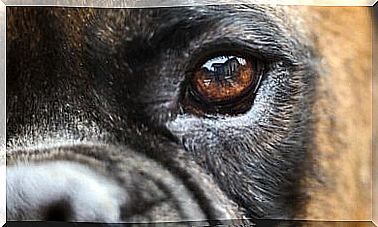How Much Does Tobacco Smoke Affect Pets?

Much has been said about the effect of cigarettes on the human body, but the truth is that tobacco smoke also affects pets. Animals, like humans, are prone to the various diseases that cigarettes and secondhand smoke bring with them.
But to our surprise, little has been released about how harmful smoke can be to animals. This is why we want to inform you about the effects of tobacco on the health of our pets.
The cigarette and nicotine
These words seem to go hand in hand when we imagine the phrase in our mind, which is to be expected. Nicotine is one of the main compounds that result from the combustion of tobacco, which enters the body through the lungs so that the rest of the body assimilates it.
The truth is that nicotine in small doses is harmless, but the negative effects proliferate as the amount increases. In humans, it is recurrent to observe anxiety and panic attacks, headaches and chronic diseases, such as different types of cancer.
And what about the animals? Although they are not smokers, as is the case with humans, in the same way tobacco smoke affects pets as we do. Depending on the race and species, animals can suffer a lot from our vice.
For example, short-nosed or brachycephalic dogs are more likely to suffer from sinusitis and respiratory tract cancer. The smoke is concentrated in greater volume in these areas, which causes a great problem for the smell of the animal.
How Tobacco Smoke Affects Pets
We have already talked about some of the diseases that cigarette smoke brings with it, but it does not stop there. In cats and dogs, diseases vary and even have different degrees of appearance, that is, one breed is more prone to suffer from a certain disease than another.
Smoke in dogs
Smell is perhaps the most sensitive sense that dogs have at their disposal, which makes them very vulnerable to respiratory diseases associated with cigarette smoke.

There are studies in which it is revealed that dogs whose owners are active smokers have an extra 40% probability of developing any type of cancer.
In addition, tobacco can create allergies of all kinds in the animal’s body, especially in the facial area, with the nose and eyes being more prone to allergies.
Other common problems are suffocation and fainting from it; If you are a heavy smoker in your home, and you do not allow fresh air or drafts, your partner will have a great chance of suffocation.
Smoke in cats
Cats are very sensitive to cigarette smoke because they are constantly cleaning themselves. The smoke particles remain on their fur and the cat absorbs them while licking. Among the diseases to which they are exposed, are the different types of oral and respiratory cancer.

In some cases, cats can suffer some type of allergic reaction in the eyes because of the cigarette smoke. The particles react with the mucosa of the eye, which causes the animal to pass its paw over the area for long periods of time and begin to tear excessively.
Cigarette butts also influence the appearance of diseases by containing residues that are released into the environment. The most advisable thing is to dispose of the cigarette butts immediately, or better yet, to stop smoking both for your well-being and that of your pets.
There are no home remedies when tobacco smoke affects pets, so it is advisable to visit the vet if you suspect that this is the case. Remember that by smoking you are not only risking your body to diseases, but to all those around you.









